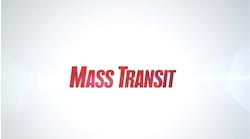Ideanomics subsidiary U.S. Hybrid joins consortium to develop hydrogen fuel cell electric shuttle buses
U.S. Hybrid, a subsidiary of Ideanomics, joined a consortium led by A-1 Alternative Fuel Systems, a provider of on-vehicle alternative fuel storage and delivery solutions, to develop hydrogen fuel cell electric shuttle buses. Supported by funding from the South Coast Air Quality Management District (South Coast AQMD) and SoCalGas, consortium partners will develop a zero-emission hydrogen fuel cell electric bus built on the Ford E-450 chassis and a low-floor bus built on the Ford F-53 chassis.
"U.S. Hybrid is the go-to partner for customers who want the best zero-emission specialty vehicles – whether it's a new build or a retrofit,” says Robin Mackie, president, Ideanomics Mobility. "Over the past two years, U.S. Hybrid's EV propulsion system and fuel cells have been installed in street sweepers, buses and port drayage vehicles. I am excited to see U.S. Hybrid partnering with A-1 Alternative Fuel Systems and other consortium members to help California's bus fleet become zero-emission faster."
The paratransit buses will be developed in the United States at facilities in Wisconsin and Indiana. U.S. Hybrid will provide the fuel cell and the EV propulsion system. A-1 Alternative Fuel Systems will provide the on-vehicle hydrogen fuel storage and delivery systems. A-1's fuel systems will be equipped with Luxfer Gas Cylinders Type-3 hydrogen tanks made with modern materials rated and suited for use at 120 degrees Celsius. The buses will be ALTOONA tested, as well as EPA and CARB certified.
Once complete, the two hydrogen-powered buses will enter service for a 12-month demonstration period operated by a California public transit authority. Once the demonstration is complete, the buses will be commercially available for purchase from A-1 Alternative Fuel System's nationwide bus dealer network in the second half of 2023.
"For the past 30 years, A-1 Alternative Fuel Systems has been at the forefront of advancing the adoption of emerging clean transportation technology," said Kevin Gilio, vice president of sales at A-1. "With support from South Coast AQMD and SoCalGas, we are accelerating the deployment of hydrogen technology in the transportation sector. Together with U.S. Hybrid and others in the consortium, we will introduce extended-range zero-emission shuttle bus solutions for the transit industry. These buses will directly address the growing concerns of operators looking to reduce emissions but are struggling with range limitations."
According to the National Renewable Energy Laboratory (NREL), more than 4,100 fuel-cell electric buses are operating globally. Many of these buses are early-stage demonstration vehicles that entered service over the past decade. Since then, the costs to build and operate a fuel cell electric bus have significantly dropped, and investment has occurred to expand hydrogen fueling infrastructure.
In the U.S., the largest deployment of fuel-cell electric buses is in California. A recent NREL report indicates that eleven of the state's largest public transit authorities are planning a fleet mix that includes fuel-cell electric buses - representing a market potential of 1,800 fuel-cell electric buses that could be purchased through 2040. NREL also anticipates that 1,500 fuel-cell electric buses could be ordered as smaller California public transit authorities finalize their zero-emission plans.
U.S. Hybrid's propriety technology has a proven track record of powering zero-emission specialty vehicles. The company's hydrogen fuel cell and EV propulsion system are currently being used to develop more than 60 zero-emission street sweepers and are powering a retrofitted top stack unit used to move containers in ports and warehouses at the Port of Los Angeles. Earlier this year, U.S. Hybrid delivered a fuel-cell electric bus to the county of Hawaii Mass Transit Agency in March.

